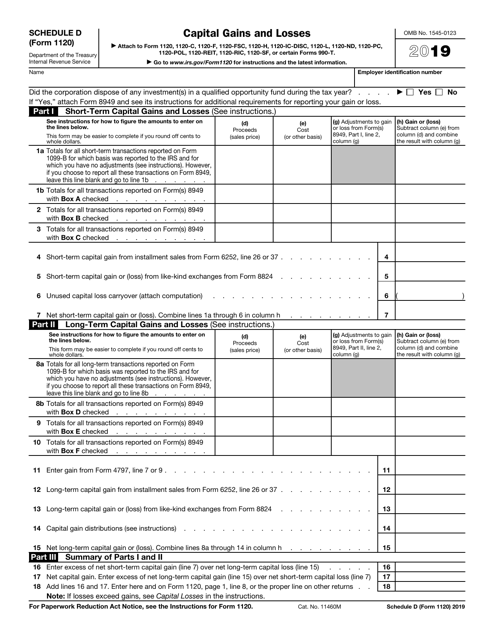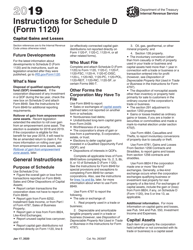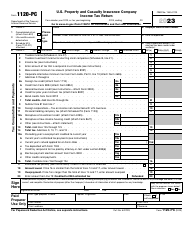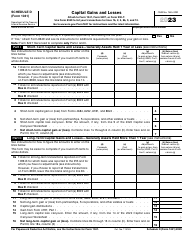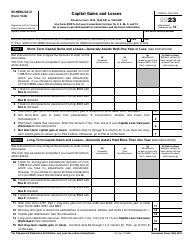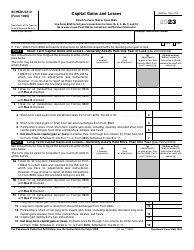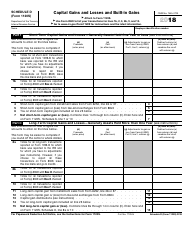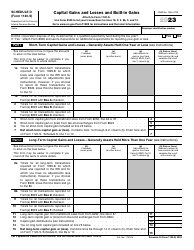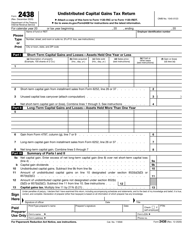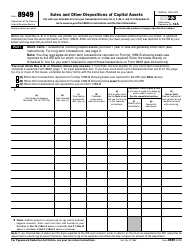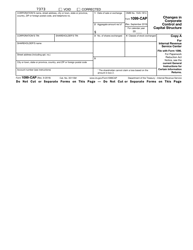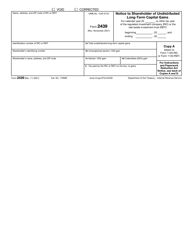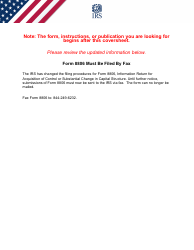This version of the form is not currently in use and is provided for reference only. Download this version of
IRS Form 1120 Schedule D
for the current year.
IRS Form 1120 Schedule D Capital Gains and Losses
What Is IRS Form 1120 Schedule D?
This is a tax form that was released by the Internal Revenue Service (IRS) - a subdivision of the U.S. Department of the Treasury. The document is a supplement to IRS Form 1120, U.S. Corporation Income Tax Return. Check the official IRS-issued instructions before completing and submitting the form.
FAQ
Q: What is IRS Form 1120 Schedule D?
A: IRS Form 1120 Schedule D is a tax form used to report capital gains and losses by corporations.
Q: Who needs to file IRS Form 1120 Schedule D?
A: Corporations that have capital gains or losses during the tax year need to file IRS Form 1120 Schedule D.
Q: What is considered a capital gain or loss?
A: A capital gain occurs when you sell an asset for more than its original cost, while a capital loss occurs when you sell an asset for less than its original cost.
Q: What assets should be reported on IRS Form 1120 Schedule D?
A: Assets such as stocks, bonds, real estate, and mutual funds should be reported on IRS Form 1120 Schedule D if they were sold during the tax year.
Q: How do I fill out IRS Form 1120 Schedule D?
A: You need to provide details of the assets sold, including the date of sale, cost basis, and sale price. You will also need to calculate the capital gain or loss for each asset and enter the total on the form.
Q: Is there any tax due or refund associated with IRS Form 1120 Schedule D?
A: The capital gains and losses reported on IRS Form 1120 Schedule D may result in either a tax due or a refund, depending on the overall financial situation of the corporation. If the total capital gains exceed the total capital losses, the corporation may owe additional tax. If the total capital losses exceed the total capital gains, the corporation may be eligible for a refund.
Form Details:
- A 1-page form available for download in PDF;
- This form cannot be used to file taxes for the current year. Choose a more recent version to file for the current tax year;
- Editable, printable, and free;
- Fill out the form in our online filing application.
Download a fillable version of IRS Form 1120 Schedule D through the link below or browse more documents in our library of IRS Forms.
